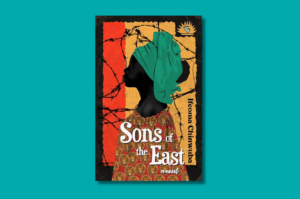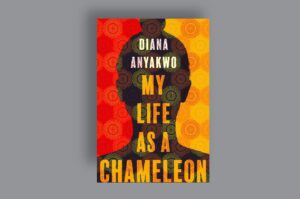
As a Mexican writer, I do not find it hard to review a magazine such as Bakwa because I acknowledge, in the first place, the long-held ties between my country and specific regions of West and Central Africa. A common history of colonialism brought us together with the European plundering of both America and Africa, with all the socio-economic, racial and political implications this has meant for the shaping of our countries’ geopolitics for the last five hundred years or so. I can mention the absurd and monstrous caste system implemented during the Spanish colonial rule in Mexico (16th to 19th century), and point out that it was the indigenous and the black population brought from the Western coasts of Africa, which stood at the bottom of society, but I do not wish to go further in enumerating the series of atrocities that Mexico and the countries in Central and West Africa have had in common. Instead, I want to stress that when I first browsed Bakwa Magazine, I thought of the enormous cultural heritage with which Africans are still nourishing Mexico. I wanted to reaffirm the strength of the bridge that has united us without necessarily having one of the Western “Big Daddies” as intermediary. I wanted our common fascination for literature and activism, in all of its forms, to be what brought us together.
Since its launch in 2012 by its founding editor, Dzekashu MacViban, Bakwa Magazine has put up resistance against silence, misrepresentation and regionalism through a wide array of artistic expressions, such as literature, photography, music, political cartoon and non-fictional reportage. Based in Cameroon, Bakwa is not only concerned with redefining Cameroonian literature and cinema from a perspective that questions the narrowness of a nationalistic agenda, but also with acknowledging the influences that currently shapes Cameroon and the countries and cultures around it; call it then, a clever expression of Pan-Africanism, that has even transcended its immediate boundaries into Europe and America. In a sustained attempt of following the traces of the African diaspora, Bakwa has situated itself in a cross-continental coordinate.
This broad perspective becomes evident from the list of contents that each of the six issues offers the reader, as well as from the alliances that Bakwa has established over the years with important magazines such as Kwani?, edited by Kenyan writer Billy Kahora; The Ofi Press Magazine, edited by poet Jack Little, based in Mexico City; and Chimurenga edited by Ntone Edjabe, based in Cape Town. This has invigorated the exchange of perspectives and the dialogue between languages, disciplines and contributors.
The matter of language deserves a special mention, since Bakwa recognizes itself as a multilingual magazine due to the remains of British and French colonialism in Cameroon. Wven when most of the contents are in English, it is possible to find French, Spanish and pidgin, along with a series of articles theorizing on language representation and identity. On this matter, one of Bakwa’s main concern is precisely Cameroon literature written in English, considered a minority form of expression in Cameroon. This phenomenon is criticized in Oscar C. Labang’s manifesto-like article “Anglophone Cameroon Literature: the Travails of a Minority Literature”, featured in Bakwa’s first issue “Home and Abroad”, as well as in Dibussi Tande’s insightful interview with Joyce Ashuntantang, who stresses the importance of those works written in English, for they contribute to the understanding of African and Cameroonian literature despite the hindrances faced in terms of distribution and publishing.
This same concern in language focuses on music as a means towards the reshaping of identity. Serubiri Moses, Nchanji Melvin, Dzekashu MacViban and Kangsen Feka Wakai, explore the possibilities of musical lyrics and expressions, such as Cameroon hip hop, Ugandan Lugaflow rap, the anti-regime songs of Lapiro de Mbanga, or Petit Pays “diasporic new” Makossa, as exercises of protest and provocation in the edge of a showbiz that is only concerned with pleasing and praising those in the high spheres of power. African music also stands as a banner against intellectual robbery by Western music stars and emporiums, as it is critically and carefully examined by Dibussi Tande in “Undermining African Intellectual and Artistic Rights: Shakira, Zangalewa & the 2010 World Cup Anthem”. This article not only exposes the plagiarism which African musicians and composers have suffered, but also, and maybe most importantly, the fact that they have been robbed with impunity precisely because colonial models of dispossession are still reproduced in several spheres. The intellectual property of Africans is not acknowledged because nothing else belonging to Africans has been respected and considered as theirs. In this sense, when putting together the articles on musicians of protest and on intellectual rights being violated, it is possible to remark that Bakwa considers musical expressions and musicians “no longer simply entertainers”, paraphrasing Ntone Edjabe’s words on Fela Kuti’s legacy in postcolonial Africa.
Poetry, and to a lesser extent fiction, is also featured in each of Bakwa’s issues; I would add that it is certainly one of the most cross-continental sections of the magazine. Experimental creation, language fusion along with poignant lines and images nurture the poetic landscape built by authors coming from several backgrounds: mocking and well-humored verses by South African Sihle Ntuli; phonetical experiments by Nigerian-Finnish Minna Salami; the English Dennis M. Lane and Jack Little; haiku by French Virginie Colline; the powerful and devastating short poems of Nfor Edwin, just to mention some of them, as well as the myriad of Mexican poets included in Bakwa’s third issue “Mexico on my mind”: Margarita Ríos Farjat, Ingrid Valencia and Fernando Bonilla, among others. In terms of fiction, Bakwa has featured an excerpt of Yewande Omotoso’s novel Bom Boy, which was shortlisted for the 2012 Sunday Times Literary Awards, and Temitayo Olofinlua’s “Adrift”. Spaces for memory of gone poets and writers are also to be found in a genuine effort to fight against the silencing of voices: Nigerian master novelist Chinua Achebe, who passed away in March 2103, is rendered a homage in a straightforward cartoon, while Russian critical journalist Anna Politkovskaya is remembered by Klas Lundstrom, in a pessimistic and mournful piece that reminds of the everyday struggle of denouncing a regime’s corruption and crime from a dissident position. On this same tone, Emmanuel Iduma writes on Ghanian poet Kofi Awoonor, who was brutally and absurdly murdered in the Nairobi Mall attacks by Somali terrorists, in September 2013. In this text, Iduma seems to conclude that poets such as Awoonor do not only inherit their works, but are also gifted with a terrible power of foresight: Why poets die?, he asks, because they are dissident, dangerous voices, and they are very much aware of that.
Words and images originate narratives of their own. In each of their specific languages, Bakwa includes an interesting and insightful sample of photos that shape the global landscape from their own perspectives and proposals of shade and light, of representation and framing, despite an awkward feeling of standing before an artifice. Streets, abstract compositions and portraits aim to create their own narratives of identity and appropriation of the world. Sentury Yob explores human features in black and white and color; Sebastiaan Bedaux, aka the Ego Tripper, captures Havana in its most everyday details; while Dimitri Pilalis denounces the conditions in which mental illness patients live in Jakarta, Indonesia.
Interdisciplinary dialogue, cross-continental exchanges and loudly-voiced critical articles make Bakwa Magazine a strong and important medium that is undoubtedly filling the void in both Cameroon and Africa left by PalaPala and other defunct magazines. The magazine is available online at bakwamagazine.com. From my brief introduction, it is clear that we stand before a magazine that is convinced of its place and contribution to the world of literature and ideas. As the editor writes, in the first of Bakwa’s editorials, “The annihilation of memory is a pathology that still plagues the collective memory of a people in this globalized generation.” However, I do believe that Bakwa is aware of its fight against oblivion: all we can do is to look forward to the next issues.
**********
About the Author:
Georgina Mexía-Amador was born in Mexico City, in 1985. She holds an MA in English Literature from The University of York, in England. Her literary criticism on female poetry has been published in Mexico and Germany. She is the author of the following works: the novel Morir como los pájaros [To Die as Birds Do]; the collection of short-stories Estragos y progenitores [Havocs and Progenitors]; the artist-book Las tentaciones de Asurbanipal [Ashurbanipal’s Temptations], and the books of poems Adrar de los Iforas and Vislumbres hacia el otro lado [Glimpses to the Other Side]. Her writings have appeared in several English and Mexican magazines, amongst others The Ofi Press Magazine, The Ebor Review, Anomalía, Radiador Magazine and Cuadrivio. She is addicted to travel and dancing.









Bakwa Magazine Revista de literatura, arte y música de Camerún al mundo | BAKWA September 11, 2014 03:50
[…] version of Georgina Mexía-Amador‘s review of Bakwa, which was originally published on Brittle Paper in English, is on Sinfín, a Mexican online magazine. Here’s an excerpt of the review, in […]